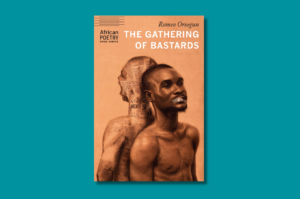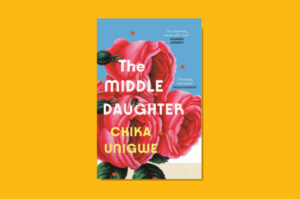
The Ojúelégba Crossroads by Abideen Abolaji Ojomu is shortlisted for the 2023 Nigeria Prize for Literature.
****
Abideen Abolaji Ojomu’s play The Ojúelégba Crossroads is one of those works that represent old, beaten themes but in fresh, new dresses. Its blatant familiarity may do well to keep you off, but its overall stylistic composition succeeds better in drawing you into it.
The play is based largely on references to the premises of fate on human existence. It is based loosely on the individual lives of different people who live in the titular crossroad, a fictional, miniaturized representation of the real-life Lagos suburb. The play begins with a courtroom scene where a Senator stands as a plaintiff to a lowly peasant, Siju Alatupa. The darkly humorous conversation between the court bailiff and the clerk sets the tone for what is to encounter in the book: the government of a nation fails to live up to its responsibilities and steals the money meant for public use. The scene is important, and symbolic, however satirical it comes off as; a senator takes Alatupa to court for stealing mangoes. At the final act of Abideen Abolaji Ojomu’s play, there is a scene that calls the attention of the culturally initiated, symbolically that is, to the July 1990 demolition of Maroko, Lagos. Interestingly, the event is alluded in the story when five men sit at the crossroads to discuss their fates.
Many Nigerian writers have tackled these themes before. Most recently, Wole Soyinka’s Alapata Apata did classic justice to it. His latest quasi-memoirist novel, Chronicles from the Land of the Happiest People on Earth did something similar. Maik Nwosu’s Invisible Chapters itself even depicted the Maroko demolition. The themes are not new, then. It’s retro now. Ojomu takes us back to the hyper-theme of third generation Nigerian writing: post-independence struggles, the hustle for a better life for the common man, and the Marxist delineation of the rich political class and poor masses. Ojomu’s story, then, simply adds to an old, nay overbeaten conversation. But then his style is not boring. His language is poetic, biblical. It feels like a leisure reading of the book of Proverbs. The movements are catchy and witty. But Ojomu’s supreme power is in his language and how he sets the tone stylistically from the second scene of the first act.
The play shows a brilliant playwright who is not afraid to be overly poetic. There’s conceit in Ojomu’s narratorial prowess. He links ideas and shows without trying too hard to show. There’s a duality present. His pop culture references, too, hit the mark well. His most suggestive is of black and white racial relations in America, and the description of the horrid execution of George Floyd in May 2020. Ojomu created an alternate American situation and placed his own characters within it. It is effective. This duality also shows in Ojomu’s description of evil and good, the decision to remain one or the other.
Ojomu’s work presents an absurdist description of the dramatic form. His dramatic language is sagely, religious, and sacrosanct. There is deep philosophy in the story, and the ways it is told. Ojomu borrows largely from the absurdist tropes of Samuel Beckett’s Waiting for Godot, and the characters roam freely within Vladimir and Estragon. The characters — and the book does focus solely on the have-nots — seem to traverse the world of the story without going anywhere. In a conversation between Majojo and Mitaya, Mitaya instructs the other that being free has taken away his sense of awareness. The comprehension of the vagaries of their existence is then best explained within the walls that hold them back in bondage. That conversation becomes perhaps the touchstone of the entire story. It is absurdity in full speed: the characters, for the best part of the work, remain blinded by their own poverty. Tunde is accused of staying to work where his father did, even after his return from New York. Alatupa who wins the court case and is (presumably) settled with three million naira still ends up unable to pay for his house mortgage until Tunde bails him out.
Still, Ojomu’s characters retain their humanity despite their life’s turmoil. Iya Eko is the stereotype of reason. Her gaudy restaurant, an asylum of some sort, welcomes in all and sundry, including a disillusioned army sergeant who fought in the Biafran War. She represents the Madam Koto of the Crossroads, a heaven and haven for both the sane, the insane, both the dead and the living. Having been chased around the state, she settles in what becomes her shop and home, but welcomes the world in it.
There is a deliberateness with which Ojomu crafts his lowly characters that is remarkable, however the risk of them being stereotypical and staid. Ojomu brings his characters full circle in the end, knotting their arcs securely. And they are not boring, they refuse to be. They are all in a race for redemption. Tunde, earmarked for a curse for sleeping with his father’s lover, finds solace in the end and saves Alatupa from being driven from his home. Sergeant Alade, driven to depression from losing his comrades to a girl during the war, stands for the celebrants at the crossroads and takes their bullets, expiring in the process. Iya Eko herself stands up to the senator and prefers to be buried in the rubbles of her home rather than running.
There is enough to be admired about the play’s effort to make a mark despite the weathered temper of its core. The trope may be old, but the dramatist manages to raise a promise that ends up being fulfilled in the end. Abideen Abolaji Ojomu’s The Ojúelégba Crossroads makes a brave statement concerning how better these two “cities” can become.
***







OLADEJO HAMMED September 23, 2023 05:27
Where can we have the book in Lagos.I mean the bookshops address.